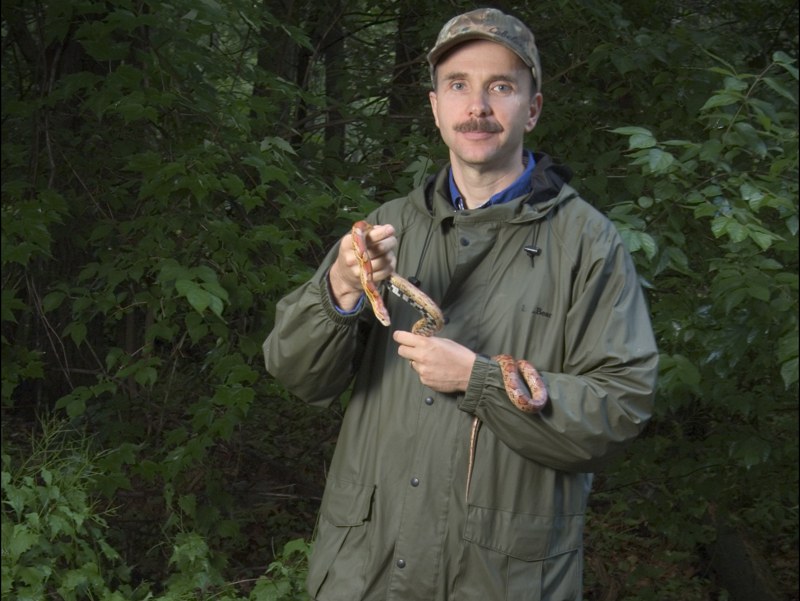Herpetologists study “herps.” Herps are what most people call reptiles and amphibians--snakes, frogs, turtles, and salamanders. Herpetologists study these creatures for many reasons: Herps can show us how healthy the water or land is where they live; they also play an important role in nature’s food chain because they eat other animals and insects.

A herpetologist at work
Herpetologists usually go to college for at least four years and sometimes more to specialize in their knowledge and skills. They learn about
- the biology and behavior of herps;
- the chemistry of water and living organisms;
- how to capture and handle herps.
Herpetologists spend a lot of time outdoors and in laboratories studying and observing herps. Contrary to what you might think their work takes them to all types of environments, including wet swamps, dry deserts, dark caves, high tree tops, rocky mountainsides, and deep valleys.

